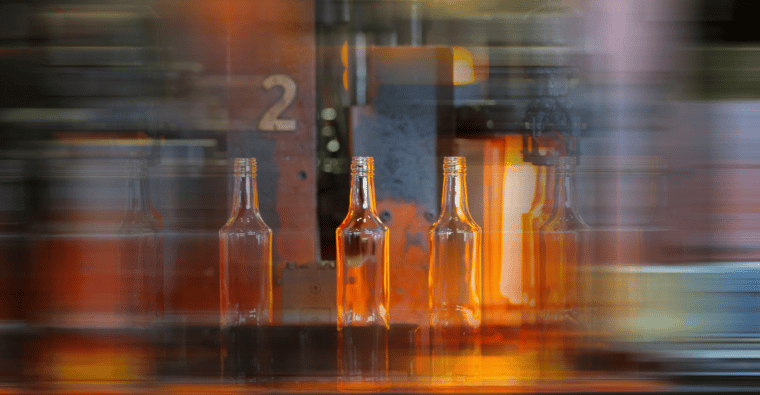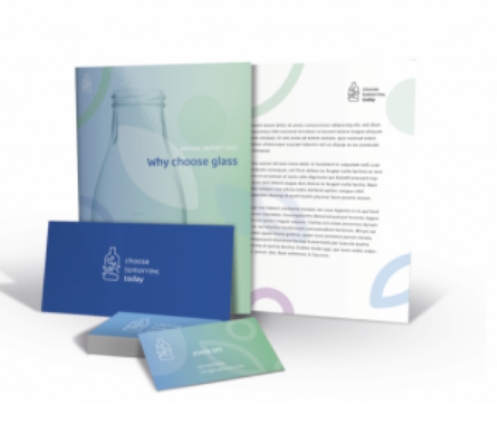Hrastnik1860 moves towards carbon-neutral glass packaging with new hydrogen technology
With demand for glass packaging on the rise, brands are looking to manufacturers to bring ever-more carbon neutral options to the table. To successfully decarbonise the industry, glass melting technology must be transformed. That’s why Hrastnik1860 is participating in the H2GLASS project to create new technology to achieve 100% hydrogen combustion in glass production facilities, while guaranteeing a high-quality product at scale.
With demand for glass packaging on the rise, brands are looking to manufacturers to bring ever-more carbon neutral options to the table. And in turn, manufacturers across the industry are setting their sights on decarbonised production through the common Furnaces for the Future vision. The latest innovative collaboration? H2GLASS: a large-scale international effort with 23 partners from the glass industry who are working together on revolutionising the glass production process. The four-year long project is coordinated by Norwegian company Sintef Energy and launched in January 2023 in Slovenia.
Hrastnik1860 aims for two of their furnaces to operate entirely on hydrogen by 2024. By combining the use of hydrogen with electrical assistance for glass melting, they plan to eliminate the greenhouse gases released during the burning of fuel without having any negative effects on the flexibility of production or the lifespan of the glass furnace.
Decarbonizing the European glass industry
How is glass packaging playing a role in addressing current climate concerns? Latest figures show that awareness of glass recycling and concerns about environmental impact and health increasingly drive everyday purchasing decisions among consumers. We all rely on packaging each day, and glass performs best in addressing environmental issues.
To make glass an even more sustainable packaging solution, the glass industry continuously invests in decarbonisation, energy efficiencies and plant upgrades with the aim to reach climate neutrality, for example by moving away from fossil fuels to renewable energy sources such as hydrogen, biomass and green electricity. Glass manufacturers are constantly exploring new furnace technologies with the goal of reducing direct CO2 emissions.
The energy efficiency of glass furnaces is the largest source of greenhouse gas emissions within the industry and poses the main challenge in reaching net-zero as an industry. New glass melting technology is needed to successfully decarbonise the industry. Several manufactures across Europe are testing and developing the use of hydrogen power for melting furnaces in glass production, as part of the industry’s collective vision on Furnaces for the Future. It is with this technology in mind that Hrastnik1860 joined the H2GLASS project.
Horizon Europe’s H2GLASS project
The H2GLASS project officially launched in January 2023. It is coordinated by Sintef Energy and supported by European funds through the International Horizon project. Horizon Europe is the EU’s funding programme for research and innovation, aimed at tackling climate change, achieving the UN’s Sustainable Development Goals and advancing the bloc’s competitiveness and growth.
In supporting the H2GLASS project, Hrastnik1860 shared its knowledge regarding the use of hydrogen in the glassmaking process. After a successful pilot, the Slovenian manufacturer is now working towards further developing the use of hydrogen in industrial glass melting furnaces. Combining the use of hydrogen with electrically assisted glass melting could be the key to the decarbonisation of glass production, supporting brands and retailers to transition to a carbon neutral supply chain.

An industry shift towards carbon neutrality and innovative technologies
Their participation in the H2GLASS project demonstrates Hrastnik1860’s commitment to sustainability and allows them to share their knowledge and expertise across the industry to help facilitate a smoother shift towards carbon neutrality, optimising the use of innovative technologies, and accelerating digital transformation.
The H2GLASS project marks a major step towards decarbonising the glass industry. To create a world that is climate-neutral, it is essential to diversify energy sources and use alternative energy sources that come from renewable sources. With this project, the glass sector has an opportunity to set an example for sustainable growth and show that it is dedicated to lowering its carbon footprint and transition to a resource-efficient and low-carbon economy, through research and innovation.
The H2GLASS project is estimated to result in 10,000 new jobs and generate revenue in between 1 and 5 billion euros for the use of glass technology. Additionally, it has the potential to result in €17 billion in investments and create 200,000 new jobs for green hydrogen while decreasing emissions across the industry by about 80%.
Hrastnik1860 is a Slovenian glass manufacturer with more than 160 years of tradition and expertise of developing and manufacturing world-class engineered glass products. Hrastnik1860 creates a wide array of products for the spirit industry – from traditional designs to innovative, award-winning designer solutions and made of top-quality glass, their products are technically demanding and are completely free of heavy metals.



